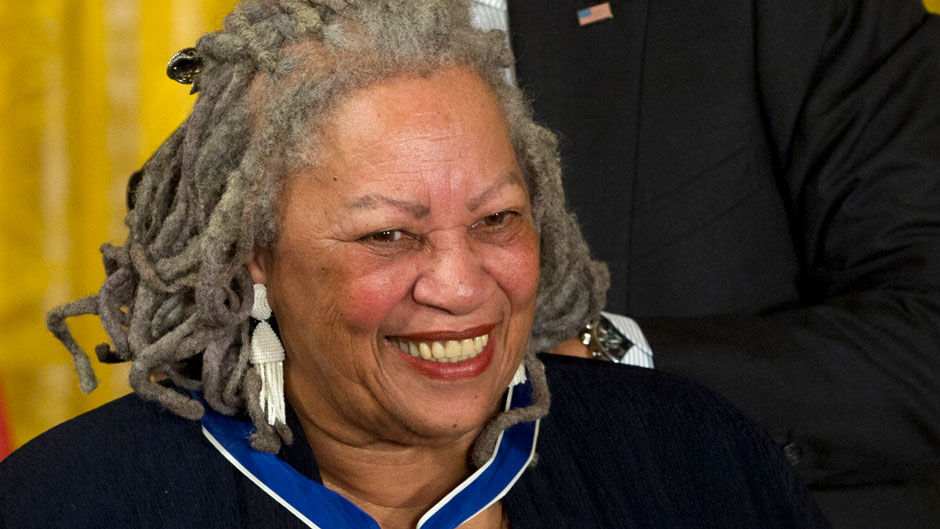In seventh grade, my best friend’s mom, Henriette Hendy, gave us her copy of Toni Morrison’s Sula.
As thirteen-year-olds in our local public school’s gifted and talented program, we felt that her mom had treated us to a perplexing adult novel. Intrigued by Nel and Sula’s friendship of opposites, we puzzled over Nel’s strict orderly home and Sula’s more unruly habits and habitus. We admired the verve with which Sula moved through the world casting aside the community’s respectable protocols; the way she moved beyond men seeking to hem her in with their catcalls—“pigmeat”—as they walked the streets; yet, we felt deeply the betrayal of friendship when Sula cavalierly became involved with her best friend’s husband. Why did Henrietta give us this novel? What lessons did she intend for us to learn? Though set in a fictive midwestern city, Sula resonated for us as young black girls growing up in 1980s Brooklyn. It was our guide on how to be empowered female walkers in the city and ultimately a guide on how to sustain a lifelong friendship. Sula, in short, taught us to claim everyday acts of black female agency and to value black female friendships. The thrill of encountering the complex life worlds of black girlhood into womanhood in an American novel—and then seeking a critical vocabulary to discuss it—planted the early seeds that led to me becoming a black female intellectual.
I never returned that novel.
Toni Morrison’s magnificent oeuvre has instructed and influenced my quest to becoming a good reader, writer, critic and teacher of American culture and history, a transferrable mode of inquiry that teaches us how to read world cultures. Morrison’s Playing in the Dark was transformative to my early understanding of myself as a scholar of the literary. Carefully tracing out the Africanist presence in the most canonical of American novels, Morrison taught us how to read blackness—even when seemingly invisible—as the omnipresent shadow that informs the white literary imagination. This book was an early insistence on the simultaneous practice of critical race theory and postcolonial studies. In graduate school, the edited collection, Race-ing Justice, En-gendering Power recontextualizing the Anita Hill and the Clarence Thomas confirmation hearings, modelled what it meant to be an engaged intellectual attuned to the problems of our political present, and to marshal the consequences of our words to speak out against the intersecting oppressions of racism and sexism. Whether creative fiction or prose, Morrison’s searing words cut to the heart of the matter to reveal acts of humane tenderness and inhumane atrocities. With a rich body of work that includes eleven novels, three children's books, seven non-fiction books, a libretto and numerous public lectures, the Nobel Laureate and Pulitzer Prize-winning Toni Morrison taught her fellow Americans to be critical thinkers by connecting how the past marks and continues to make meaning in our present. In this urgent era of xenophobia, anti-immigrant, anti-black, anti-children, anti-human rights, the gift of Morrison’s writings and her legacy compels us to write truth to power; compels us to tell the story of the most marginalized among us; compels us to act.
We honor her legacy by taking up the collective task of participating in intelligent, uncomfortable discussions in our homes, classrooms, places of work and worship. At the University of Miami, we can honor the legacy of this American master by teaching a Morrison essay or novel in every of our classrooms this year, using her example to exercise the courage to tell the truth however messy or uncomfortable.
“The ability of writers to imagine what is not the self, to familiarize the strange and mystify the familiar, is the test of their power…What I propose here is to examine the impact of notions of racial hierarchy, racial exclusion, and racial vulnerability and availability on nonblacks who held, resisted, explored or altered these notions.” - Toni Morrison, Playing in the Dark
Donette Francis is the director of the American Studies Program and associate professor of English in the University of Miami College of Arts and Sciences. She specializes in Caribbean literary and intellectual histories, American immigrant literatures, African diaspora literary studies, globalization and transnational feminist studies, and theories of sexuality and citizenship.

